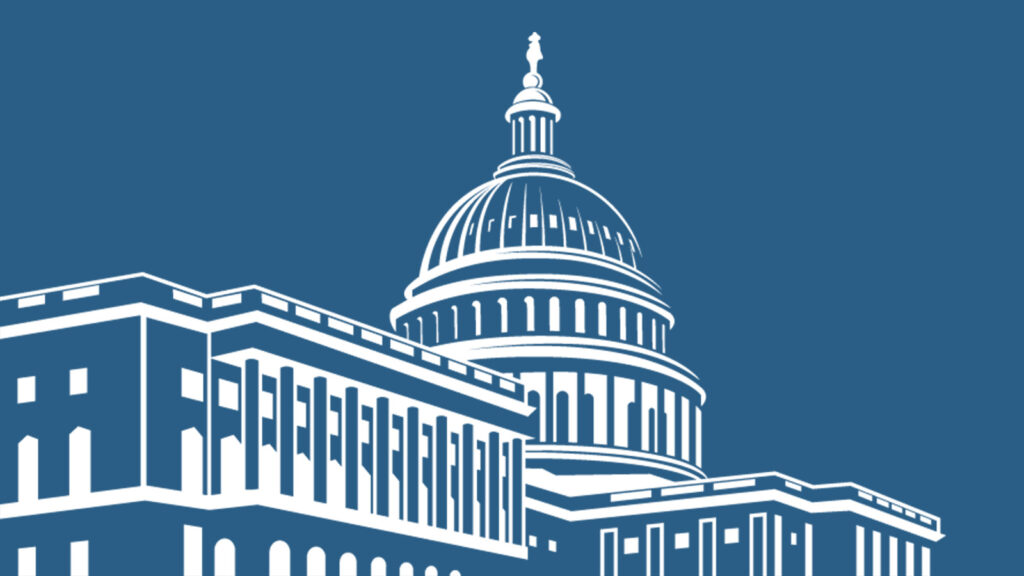
Proposed Initial Denial Policy
Near the end of 2024, the Federal Aviation Administration (FAA) announced its intent to implement a new policy affecting the processing and handling of airman medical-certificate applications (Initial Denial Policy). Under the Initial Denial Policy, “incomplete” applications must be “denied” rather than “deferred.” A denial would generally be accompanied by a reconsideration letter, highlighting the documentation the airman must gather and provide for possible consideration on a future application.[i] Currently, incomplete applications typically prompt a deferral and a request for further information within a specified time. An incomplete application is an application that does not include all the examinations, medical records, criminal records, or other documentation necessary for the FAA to determine an airman’s eligibility to hold a particular class of medical certificate. An outright denial indicates that the airman is NOT aeromedically fit to fly while a deferral merely indicates that a medical certificate cannot be granted without more information. A deferral leaves several other doors open for the airman in aviation while they await a determination regarding their eligibility while denial slams most of those doors shut, sometimes permanently.
Consequences
While the intent of the Initial Denial Policy is to streamline the FAA’s undeniably slow and cumbersome review process for airmen applying for medical certification, the unintended consequences of implementation far outweigh any potential gains in efficiency of review. Notwithstanding whether the Initial Denial Policy would actually reduce the administrative burden on the FAA and wait times for airmen, the consequences of denying applications outright would create more confusion and unjustifiably infringe upon the ability of airmen to safely pursue various aviation activities.
In addition to losing the privileges granted directly by an FAA medical certificate, airmen whose applications are denied miss out on additional opportunities, such as getting a sport-pilot certification or flying under BasicMed. BasicMed was implemented by Congress specifically to reduce the administrative burden on the FAA in reviewing airman medical applications by allowing pilots to operate certain aircraft under certain conditions without holding an FAA medical certificate. An airman who is denied a medical certificate is not eligible to fly under BasicMed and must therefore pursue FAA medical certification if they hope to fly. It is not difficult to imagine a scenario where an airman would like to test the waters of FAA medical certification, but if the process of demonstrating their aeromedical fitness proves too costly or burdensome, they will ultimately choose to operate safely under BasicMed. Under the Initial Denial Policy, an airman who provides an incomplete application for airman medical certification cannot subsequently fly under BasicMed, at least not until they complete the process and receive an airman medical certificate. Accordingly, initially denying airmen under the Policy will force them into the FAA’s medical certification process, thereby increasing the FAA’s administrative burden in direct contradiction of Congressional intent; not to mention that the process often costs airmen thousands or tens of thousands of dollars out of pocket to obtain the necessary evaluation and documentation, which is either impractical or impossible for many.
In addition to the limiting effect of a denial on an individual’s legal ability to exercise other privileges, a denial creates a negative stigma against the airman in the community and with potential employers. Airmen are required to report whether their medical certificate has “ever been denied, suspended, or revoked,” on every subsequent application for medical certification and often on employment and insurance applications. An affirmative answer to that question, particularly on employment screenings, may doom the airman’s chances at success because each time it creates a presumption against their aeromedical fitness.
To add insult to injury for these airmen, denying applications for medical certification that are deemed “incomplete” requires airmen to return to their Aviation Medical Examiners (AMEs) for another costly physical exam and review after they collect any additional information that is requested for reconsideration.
Ultimately, the misguided Initial Denial Policy would place an undue burden on airmen rather than address the underlying issues of efficiency within the FAA’s Office of Aerospace Medicine. Even if an applicant provides all the standard documentation required based on their condition or case type, it is not uncommon to see the FAA request additional information due to the applicant’s unique circumstance. Under the Initial Denial Policy, that applicant stands to be denied even if the request is minor while the airman is aeromedically fit otherwise. The Policy would require airmen with any medical condition, or possible regulatory condition, with the help of their AME, to read the FAA’s mind prior to applying for certification to determine what documentation is “necessary” in their particular case. Put simply, the Initial Denial Policy would allow the FAA to pass the buck to airmen rather than do the hard but necessary work of improving their own processes in order to provide each airman the individualized medical review they deserve before permanently marking their application as “denied.”
Staying The FAA’s Heavy Hand
On December 13, 2024, various groups within the aviation industry penned a collective letter to the Federal Air Surgeon, Dr. Susan Northrup, requesting a stay in the implementation of the Initial Denial Policy. The letter noted that the Policy was “driven by the FAA’s interpretation of Section 801 in the FAA Reauthorization Act of 2024.” It also noted that the Initial Denial Policy was contrary to the Federal Air Surgeon’s stated goal of “getting to yes,” and provided alternative methods for achieving the FAA’s goals while reducing administrative burden such as modernization of the data collection and storage systems, increased transparency in the medical certificate application review process. The December 13 letter was signed by fourteen industry associations and unions representing tens of thousands of pilots across the United States and the globe, clearly demonstrating the aviation community’s disagreement with the Initial Denial Policy.
Within the United States Congress, Representative Sam Graves, the Chairman of the House Transportation and Infrastructure Committee and an airline transport pilot, called for a stay to the implementation of the Initial Denial Policy, echoing the concerns of the December 13 letter and again voicing the sentiment of the aviation community at large.
On December 18, 2024, the FAA announced that it would postpone the implementation of the Initial Denial Policy until March 1, 2025. In that announcement, the FAA stated that “[p]ostponing allows the FAA additional time to educate the pilot community and to host a listening session with various aviation associations in early January.” In contrast to briefings previously provided to AMEs and pilot advocacy groups, the FAA stated in its December 18, 2024 announcement that “[t]he decision to implement this change was not associated with the FAA Reauthorization Act of 2024, but the need to provide immediate answers to airmen regarding the medical certification process.” The announcement by the FAA therefore indicates that the Initial Denial Policy was not a misguided interpretation of the FAA Reauthorization Act of 2024 but was instead developed and implemented at the administrator’s or a delegated representative’s discretion with the intent to provide airmen with immediate answers regarding their eligibility status. This writer questions whether the Initial Denial Policy makes any progress at all toward that goal. A blanket denial with a reconsideration letter does not provide any additional information to the airman that a deferral and request for further information cannot. The Initial Denial Policy does little to nothing in pursuit of increased transparency and efficiency and instead simply discourages airmen and aspiring airmen from seriously pursuing medical certification simply because the FAA is unable or unwilling to handle its workload effectively.
What’s Next?
So, what will happen to the Initial Denial Policy and how should pilots prepare? Frankly, we don’t know. The FAA has indicated its intent to implement the Initial Denial Policy on March 1, 2025, but as we have seen, the aviation community can affect real change. The FAA has announced that it will hold a “listening session” with the community prior to implementation of the Initial Denial Policy. This listening session will be crucial for aviation groups articulating the pitfalls of the Initial Denial Policy to the Office of Aerospace Medicine. The aviation community should continue to voice its concern across any available forums to clearly display the disagreement from actual pilots, ATCs, and other parties with a legitimate interest in aviation and the safety of the National Airspace System. Hopefully, with enough insight from interested parties, the FAA will realize its mistake and either revoke or revise the Initial Denial Policy prior to implementation to better suit the needs and concerns of both the aviation community and the FAA.
If the Initial Denial Policy is implemented, then pilots must ensure that their application is “complete” prior to submission by working with their medical providers, AMEs, and aviation attorneys to determine what documentation is necessary and to provide all that documentation in a timely manner. Under the Initial Denial Policy, airmen will have only one chance to get their application for medical certification correct, otherwise, they will face the often-severe consequences of denial.
[i] “Reconsideration” is a misnomer in this case because incomplete applications will never be properly considered in the first place and therefore any “reconsideration” would truly mark the first substantive consideration of that application.






















































































































